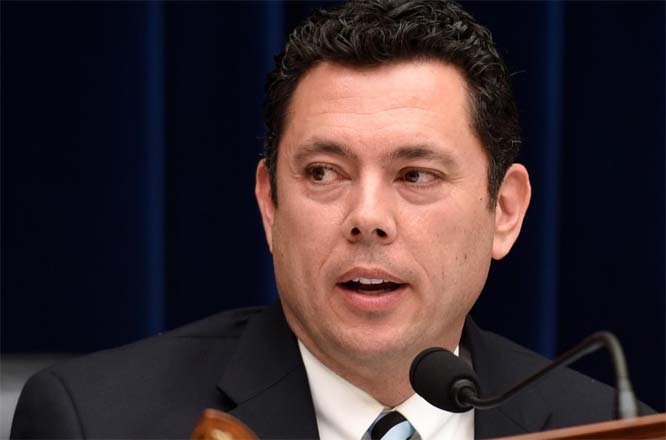
The plan to conduct sweeping reviews of actions by D.C. lawmakers is part of a two-year agenda published by the House Committee on Oversight and Government Reform. The committee is expected to adopt it Tuesday.
It comes as the committee's chairman, Rep. Jason Chaffetz, R-Utah, has vowed to stop the District from legalizing physician-assisted suicide. Chaffetz last week also wrote to D.C. Mayor Muriel E. Bowser (D), warning that her plan to use tax dollars to defend illegal immigrants from deportation could violate federal law.
Eleanor Holmes Norton, who has been the District's nonvoting delegate to Congress since 1991, said the proposal would have federal lawmakers on Capitol Hill taking their most active role in D.C. governance in decades.
"It speaks to almost cosmic oversight of a local jurisdiction," Norton said.
Republicans should move in the opposite direction, she said. "I urge the majority to follow its principles on local control and to respect the democratic rights of D.C. residents."
Congress last exerted direct control over District operations in the late 1990s, when it created a federal control board to rescue the city from fiscal crisis.
A closer review of D.C. laws could quickly highlight District policies that have for decades quietly existed in conflict with federal laws.
Among them are District guidelines on welfare payments. The federal district never fully implemented welfare reforms begun under President Bill Clinton two decades ago. As a result, the District spends about $40 million annually in payments to welfare recipients beyond the five-year limit that exists in states.
Chaffetz's committee could also target the assisted suicide law. The legislation, passed by the D.C. Council and signed into law by Bowser late last year, includes hundreds of thousands of dollars that D.C. plans to spend to teach health-care professionals how to approach assisted suicide.
"I don't think there's any federal law that allows doctors to engage in assisted suicide," said Hans von Spakovsky, senior legal fellow at the Heritage Foundation, who was among several conservatives who heralded the committee's plan Monday.
"It's very clear that the Constitution gives Congress full authority over the District. It has given D.C. some amount of home rule, but that doesn't mean they can't overrule bad decisions by the D.C. government . . . or get rid of home rule," he said. "I'm not saying they should do that, but if they think a particular law is bad public policy, they have the authority and responsibility to overturn it."
Chaffetz did not respond to a request for comment.
The committee's draft plan states that it will "work to strengthen Congress's oversight of the District and exercise of its plenary legislative authority granted by the Constitution." Such wide-ranging language was absent from its agenda from the last Congress, which only mentioned oversight of D.C.'s use of federal education funds and the working of the Metro transportation system.
D.C. Council Chairman Phil Mendelson (D) said the plan suggested a startling return to federal interference in District affairs.
"It feels like a step back in time," he said, noting that Congress pulled away from local interference in 1973 when it allowed residents to elect a mayor and legislative council. "For the first time since probably home rule . . . a committee of Congress is saying, 'We're going to review the District's expenditures on local programs,' implying a level of detail and scrutiny as if they're going to be involved in day-to-day operations."
Bowser's chief of staff, John Falcicchio, said in an email that the mayor was hopeful that Norton would defend the District.
"As Mayor Bowser said recently, the best thing those folks can do is leave us alone," he wrote.
Norton said she would try to persuade Republicans to alter their direction.
That appeared unlikely. Since the new Congress convened this month, Republicans have pushed to gut several of the District's progressive policies, including its gun-control laws and its use of local tax dollars to provide abortions for poor women.
Rep. Elijah E. Cummings (Md.), the ranking Democrat on Chaffetz's committee, said none of his colleagues would stand for the federal government dictating local issues "and D.C. should be treated no differently."
Council member David Grosso, I-At Large, said Republicans see D.C. as an experimental lab.
"It's just easier for them to try out their really bad ideas on us, because they don't have any electoral accountability," Grosso said. "If they tried this stuff out on the people of Utah they could get voted out of office."


 Contact The Editor
Contact The Editor
 Articles By This Author
Articles By This Author